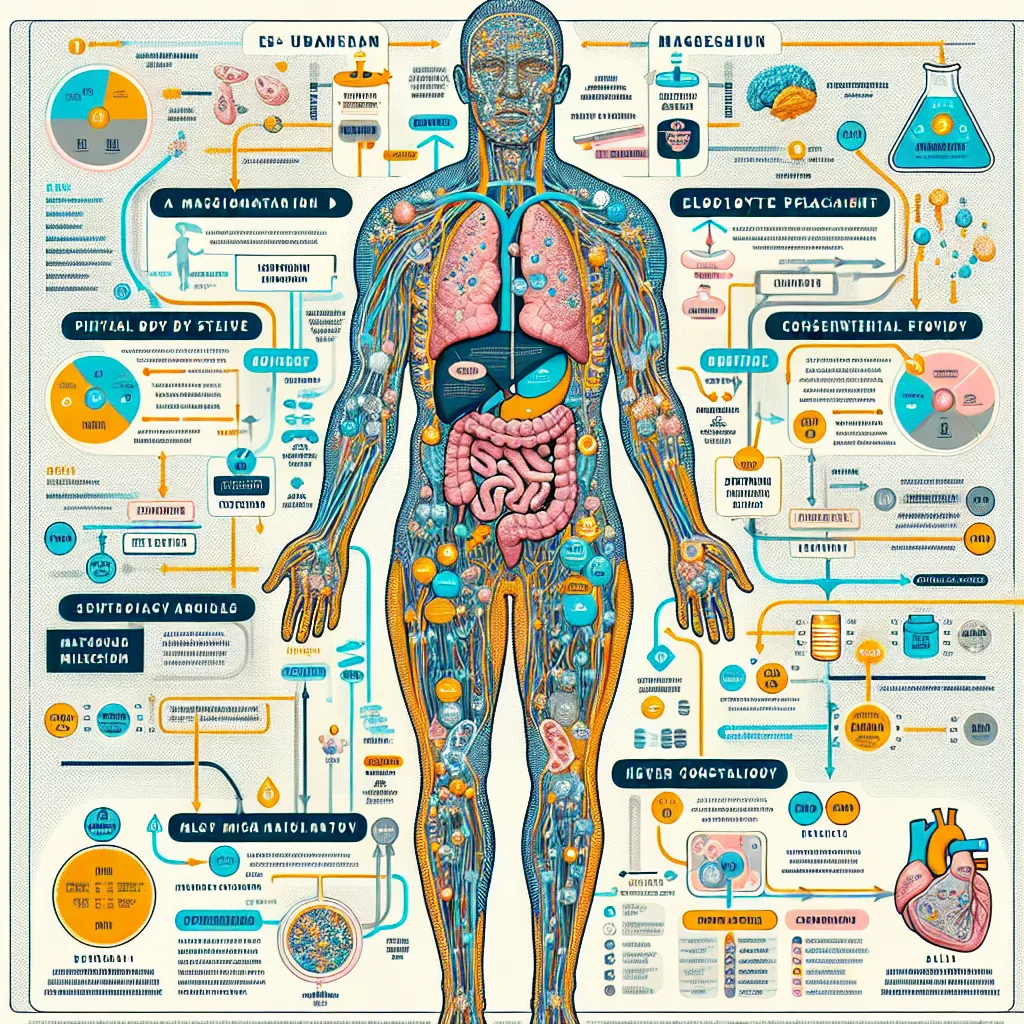“Electrolyte replacement” is a crucial concept in sports science and nutrition. Let’s break it down:
- Definition: The process of replenishing essential minerals lost through sweating or other bodily functions.
- Part of speech: Noun phrase
- Pronunciation: /ɪˈlektrəlaɪt rɪˈpleɪsmənt/
This term is particularly relevant in the field of sports medicine and hydration, making it a valuable addition to your IELTS vocabulary, especially for Task 1 and Task 2 essays related to health and fitness.

Context and Usage
Examples in Context
-
During marathon training, athletes focus on electrolyte replacement to maintain their performance.
Analysis: This sentence demonstrates the importance of electrolyte replacement in endurance sports. -
The sports drink market has grown significantly due to the increased awareness of electrolyte replacement needs.
Analysis: This example shows the commercial aspect of electrolyte replacement in the beverage industry. -
Doctors often recommend electrolyte replacement solutions for patients suffering from severe dehydration.
Analysis: This sentence illustrates the medical application of electrolyte replacement beyond sports. -
Understanding proper electrolyte replacement is crucial for hikers in hot climates to prevent heat exhaustion.
Analysis: This example highlights the relevance of electrolyte replacement in outdoor activities and environmental considerations. -
Research indicates that balanced electrolyte replacement can improve cognitive function during prolonged exercise.
Analysis: This sentence introduces the cognitive benefits of proper electrolyte balance, adding a scientific perspective.
Common Contexts
Electrolyte replacement is frequently discussed in:
- Sports nutrition
- Medical treatment for dehydration
- Endurance athletics
- Hot weather activities
- Recovery from illnesses involving fluid loss
Frequency in IELTS
While not extremely common, “electrolyte replacement” can appear in:
- IELTS Reading passages about sports science or nutrition (Academic module)
- Writing Task 2 essays on health and fitness topics
- Speaking Part 3 discussions about sports or health trends
Vocabulary Analysis
Word Structure
- “Electrolyte”: A compound word
- “Electro-” (prefix): Relating to electricity
- “-lyte” (suffix): From Greek “lytos,” meaning “loosened”
- “Replacement”: Noun form of “replace”
- “Re-” (prefix): Again
- “place” (root): To put in a particular position
Synonyms and Antonyms
Synonyms:
-
Mineral replenishment /ˈmɪnərəl rɪˈplenɪʃmənt/ (noun phrase)
- Definition: The act of restoring essential minerals to the body
- Usage: “Proper mineral replenishment is key after intense workouts.”
-
Ion restoration /ˈaɪən ˌrestəˈreɪʃən/ (noun phrase)
- Definition: The process of bringing ion levels back to normal in the body
- Usage: “The sports drink is designed for rapid ion restoration during exercise.”
-
Electrolyte balancing /ɪˈlektrəlaɪt ˈbælənsɪŋ/ (noun phrase)
- Definition: The act of maintaining proper levels of electrolytes in the body
- Usage: “Electrolyte balancing is crucial for optimal athletic performance.”
Antonyms:
-
Electrolyte depletion /ɪˈlektrəlaɪt dɪˈpliːʃən/ (noun phrase)
- Definition: The loss or reduction of essential electrolytes in the body
- Usage: “Excessive sweating can lead to electrolyte depletion if not addressed.”
-
Mineral deficiency /ˈmɪnərəl dɪˈfɪʃənsi/ (noun phrase)
- Definition: A lack of essential minerals in the body
- Usage: “Long-term mineral deficiency can have serious health consequences.”
Memory Techniques
Mind Mapping
Create a mind map with “Electrolyte Replacement” at the center, branching out to related concepts:
- Sports (marathon, soccer, tennis)
- Minerals (sodium, potassium, magnesium)
- Symptoms of deficiency (cramping, fatigue, dizziness)
- Sources (sports drinks, bananas, coconut water)
Storytelling Technique
Imagine a marathon runner named “Ellie” (for Electrolyte). As she runs, she loses minerals through sweat. At each water station, she “replaces” what she’s lost by drinking special fluids, helping her maintain her “electric” pace to the finish line.
Practice Exercises
Application in IELTS Writing
Task 2 Question: Some people believe that sports drinks are essential for athletes, while others think they are unnecessary. Discuss both views and give your opinion.
Sample Paragraph:
Proponents of sports drinks argue that they are crucial for electrolyte replacement, especially during intense or prolonged physical activities. These beverages are designed to replenish essential minerals lost through sweating, potentially improving performance and reducing the risk of dehydration. For instance, marathon runners often rely on sports drinks to maintain their electrolyte balance throughout the race, which can be critical for avoiding cramps and fatigue.
IELTS Speaking Practice
Part 3 Question: How has our understanding of nutrition in sports changed over the years?
Sample Answer:
Our understanding of sports nutrition has evolved significantly, particularly in the area of electrolyte replacement. In the past, athletes might have simply drunk water during events, but now we recognize the importance of replenishing minerals lost through sweat. This knowledge has led to the development of specialized sports drinks and even personalized hydration strategies for athletes. For example, many professional teams now have nutritionists who create tailored electrolyte replacement plans for each player based on their individual sweat rates and mineral losses.
Conclusion
Mastering the concept of “electrolyte replacement” is valuable for IELTS success, especially in tasks related to health, sports, and nutrition. Remember to practice using this term in various contexts to solidify your understanding and improve your ability to use it naturally in the exam.
We encourage you to create your own sentences using “electrolyte replacement” and share them in the comments below. How might you use this term in a discussion about modern fitness trends or health practices?